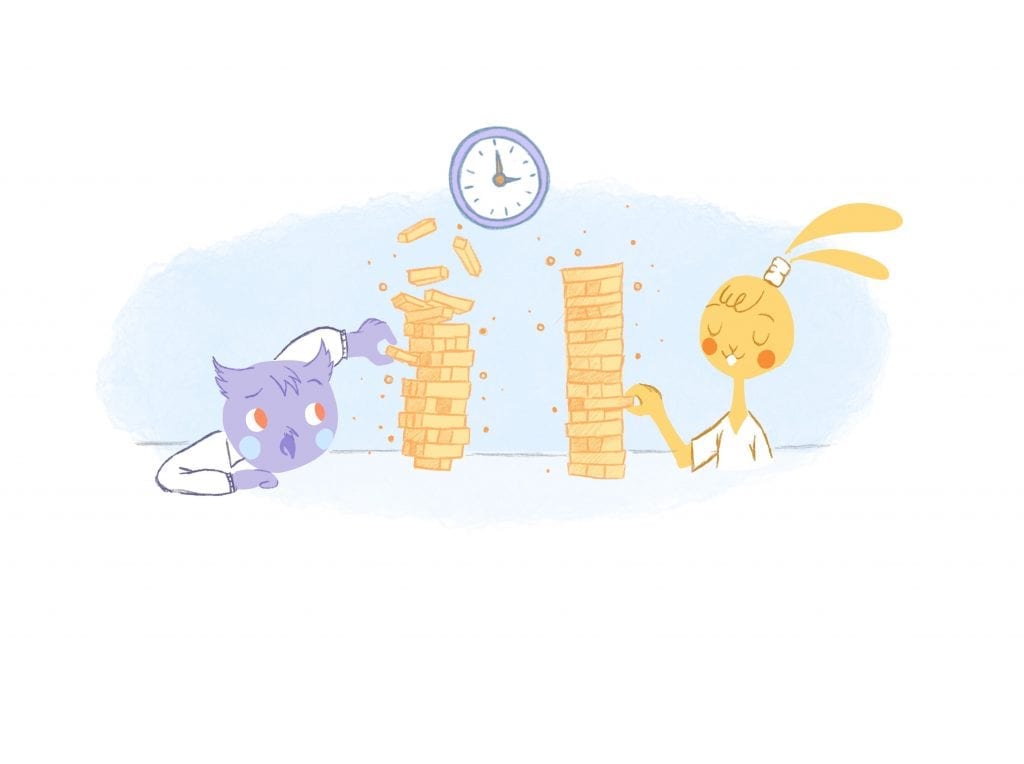

Even if you believe that you have a tedious and repetitive job, there are still a variety of tasks that deserve your attention throughout the day. But, how can you possibly devote the right amount of attention to every one of these jobs? You move forward by creating a schedule for your most important tasks. Here are 25 benefits of creating a schedule for your tasks.
Not only will that guarantee that you’ll get everything done that you want to, but it will also boost your productivity. And, you’ll also experience the following 25 perks as well.
1. Establishes a Routine
When you create and stick to a schedule, you’re establishing a routine. As a result, you have more structure and discipline in your life. That may not seem necessary. But, when you’re anchored with the correct routine, you can fight back against uncertainty — which can lead to stress and unhealthy habits.
Besides being beneficial to your mental and physical health, routines can help reduce fatigue. Mainly this is because you’ll spend less time and energy having to make decisions. You know exactly what to do and when to do it.
2. Relaxes You — and Others
Even though I just mentioned stress, it deserves to be expanded upon. Why? Because stress is often considered the silent killer because of the harm, it can put on your mind and body. While a schedule won’t wholly phase-out stress, it can help.
Having a schedule guides you in determining what your priorities are so that you can spend the right time on the right tasks. It also reminds you of any forthcoming deadlines. Knowing this, you can block out sufficient time to meet them. Moreover, it prevents your work from piling-up into a massive and overwhelming obstacle that you believe you’ll never conquer.
Also, stress is contagious. When you’re frustrated, those feelings can spread to others like your colleagues or family members. If not addressed, that can cultivate a toxic work environment or put a strain on your relationships.
3. Preserves Your Most Valuable Resource
Time. It’s, without a doubt, your most valuable resource. After all, once it’s gone, it can never come back.
When you have a consistent schedule, you won’t be able to add more hours to your day magically. You will, however, spend less time making decisions, planning, and preparing. It also encourages you to stop wasting time on unproductive activities, like getting sucked into social media. In turn, because you’re more efficient with your time, you’ll have ample time to tackle your tasks. And, you’ll even have a little extra time to spare on the things that you enjoy doing.
4. Creates Benchmarks
Over time having a daily schedule will give you a baseline on how long it actually takes to complete specific tasks. You can use this knowledge to build more effective time blocks. For example, if you’ve been blocking out an hour for writing a daily blog post, and it takes you closer to two, then you can adjust your schedule.
More importantly, if you realize that you’re spending too much time on less critical tasks, then you may want to start delegating these resources to someone else.
5. Goals Become More Tangible
Like playing the guitar, anyone can set goals. But, if you want to achieve either, you need to have a plan and a realistic schedule. It’s not like you’re going to pick-up a guitar for the first time and pull off a solo that would equal Jimi Hendrix, Eric Clapton, Eddie Van Halen, or Slash.
Instead, strategies like the RPM method will help you reach your goals. In this instance, you would jot down your goals, chunk your time, and create RPM blocks for specific goals that include a plan for reaching the goal.
6. Less Rework
When you’re organized and are prepared in advance, you’re calm, relaxed, and collected. As a consequence, you’ll be less likely to forget things like additional details or instructions. If you leave these out, you’ll have to come back and add them later.
Additionally, you’ll make fewer mistakes. Not only is this embarrassing, but it also could harm your reputation. And, you’ll also have to spend time correcting your error.
7. Feel More Accomplished
Is there anything better than feeling accomplished? Personally, I don’t think so. When you think that you’ve had a productive and meaningful day, you feel good about yourself. In turn, this will encourage and motivate you to replicate this feeling.
8. Tasks Become Owned
Adding something to your calendar is like when an athlete signs a contract. They decided to commit to playing for a team for a certain amount of years — and a decent amount of money as well.
When putting something in your calendar, you’ve made a similar commitment. You’ve blocked out a time to focus on a specific task. During that timeframe, that’s the only team that you’re playing.
If you’re managing a team, then you can assign tasks to each member. It’s a simple way to prevent confusion when collaborating on a project since everyone knows what they’re responsible for.
9. Develops Your Reputation
We all have that person in our lives. They’re always running late, flaking out at the last minute, or missing important deadlines. There could be several reasons why they’re like this. But at the top, it’s because they’re unorganized and have spread themselves too thin.
Regardless of the exact reason, you don’t want to have this reputation precede you. It’s not just not good for you personally or professionally. Instead, you want to be known as someone who is always dependable and reliable.
10. Prepares You For the Unexpected
No matter how organized you are, the unexpected is still ready to pounce on you. Thankfully, when you have a plan, you’ll be in a better position to address this. That’s because you’re already identified any possible problems in advance. More importantly, you’ve also left some blank space in your calendar to put out fires without it interfering with what you’ve already had scheduled.
11. Minimizes Distractions
Whether you’re at home, the office, or a coworking space, distractions are all around. Some of these might be inevitable. But, you can minimize them when you know that you need to devote 100% of your attention and energy to a particular task at a specific time.
For instance, if you’ve blocked out 9 a.m. to 11 a.m. for deep work, then you would close your office door. You could also put your phone on the ‘Do Not Disturb’ mode. And, you could single task on the work at hand instead of multitasking.
12. Less Rushing
Rushing isn’t just stressful. It also impacts the quality of your work. In your quest to get as much done as fast you possibly can, you speed through your obligations. In the end, you’re sacrificing quality for quantity.
Scheduling can put a stop to this. That’s because you’re only scheduling the tasks that you can realistically do in a precise amount of time. Everything else gets placed on the back burner until you have the availability.
13. Improves Proficiency
Doing the same thing regularly can get annoying at some point. However, until then, it can make you more proficient. Going back to the guitar example, if you scheduled 30-minutes per day to practice, you’d well be on your way to becoming a reliable player since you’re performing this task over and over again.
14. Keeps the Big Picture in Sight
Having a plan paints a clearer picture of what you need to do. It also encourages you to prioritize the tasks that will help you achieve your goals. In other words, it reminds you that what you’re currently focused on plays a role in the big picture.
15. Builds Momentum
Have you been putting off a challenging or difficult task? Well, a schedule can help you build momentum to get the ball rolling.
“Commit to starting a task and working on it for at least 20-30 minutes,” suggests Choncé Maddox in a previous Calendar article. “Stay focused during this time and ignore all distractions.”
“When time is up, you’ll likely have more focus on the project and be willing to continue working on it,” adds Choncé. “Even if you aren’t, you’ll have made progress during the 20-30 minute time streak.”
Once you get started, “it’s not too hard to keep going and finish up.” You’ll probably “transition to a state of intense focus, and even if it’s not for long, you’ll get closer to finishing the big project nonetheless.”
16. Progress is Easier to Track
If you’ve identified your goals and scheduled the tasks that will get you there, then it’s pretty easy to track your progress. You can review your calendar to reflect on what you accomplished. If working with others, you can see how far along they are on their part of the project.
17. Opens the Door to More Opportunities
When you’re on top of your priorities, more opportunities will be presented to you. Let’s say that you have earned a stellar reputation at work for always meeting deadlines. That could lead to a promotion. Or, if you’re ahead of schedule, you could attend that networking event that you weren’t sure that you had time to attend previously.
18. Prevents Conflicts
“The greatest victory is that which requires no battle.” Sun Tzu wrote that in The Art of War. And, it’s one of my favorite quotes ever. I mean, why engage in battle when you don’t have to?
Obviously, Sun Tzu wasn’t thinking about scheduling when he authored his legendary military treatise. But, this tactic can be applied to this area. That’s because when you create a schedule for your tasks, you’re preventing conflicts like double-booking. If your time is already scheduled, then you know that you can’t plan anything else during that block.
Also, if you know when a task is due, then you need to schedule your tasks accordingly so that you don’t miss the deadline.
19. Allows for spontaneity.
Yes. You read that correctly.
Although it may sound like the opposite, having a schedule gives you structure. You know what tasks to focus on and when. No exception. As a result, you’ll knock these responsibilities out during the time you’re allotted. That means there will be other times throughout the day where you have nothing scheduled. It’s during these periods where you can allow life to flow.
20. Encourages You to Finish What You Started
Growing up, my dad was infamous for starting a project and never finishing it. Sometimes it was because he didn’t have the extra cash. Other times he was too stubborn to throw in the white towel. But, ultimately, it was because something else always popped up.
Scheduling your tasks ensures that you’ll always finish what you started. You’ve strategically set aside a time to focus on a particular task. During that time, that’s the only thing that you’re focused on. And, you aren’t moving on to something else until it’s completed.
21. Keeps Everyone in the Loop
Even if you’re a solopreneur, there will be times when you need to share your schedule with others. For example, a new client wants to hire you, and they inquire about your availability. Sharing your calendar with them lets them know when you’ll be able to work on the assignment. They might also be able to track your progress.
You may also want to share your schedule with your family or employees so that they know when you’re busy and when you’re free.
22. Gamifies Your Schedule
“Gamification is turning a task into a game to motivate yourself to do it,” Deep Patel explains in Entrepreneur. “The beauty of gamification is that the difficulty of a task (or how dreary it may seem) can be offset if you feel rewarded for completing it.”
How can you gamify your schedule? Well, let’s say that you’ve set aside two hours to complete a specific activity. You could try to beat your schedule by finishing the task in an hour and a half. Those extra 30-minutes could be used for something fun like listening to a podcast or leaving work early. You may even be motivated to beat that record the next time you’re working on a similar assignment.
23. More Effective Budget Tracking
Proper planning can help you determine how much it’s going to cost to complete specific tasks or projects. Let’s say that you’re a freelancer. Knowing the amount of time needed to do a job will help you give a prospective client an accurate quote. On the other side, if you’re outsourcing tasks, then having a schedule can let you know how much you need to set aside for individual assignments.
24. Builds and Protects Boundaries
Do you have difficulty saying “no” to others? Do you wish that you were able to maintain a healthy work-life balance finally? Well, having boundaries can assist you in both of these areas. And, when you have a schedule in place, that makes constructing and protecting your boundaries a lot easier.
As an example, if a co-worker asks you to meet with them to discuss an upcoming project. You can politely turn down this request. You can let them know that your time has already been booked. But, you could share them your calendar so that they can pick a time and date when you’re both available to meet.
25. Allows You to Spend Time Where it Really Matters
Finally, having a schedule for all of your tasks will enable you to allocate your time to where it matters most. Whether if that’s blocking out time for deep work, meeting, or attending to your own self-care, scheduling ensures that you have the time to do what matters most to you.











Abby Miller
Student at UC Berkeley, currently working on a degree in Electrical Engineering/Computer Sciences and Business Administration. Experienced in CSX, productivity management, and chatbot implementation.